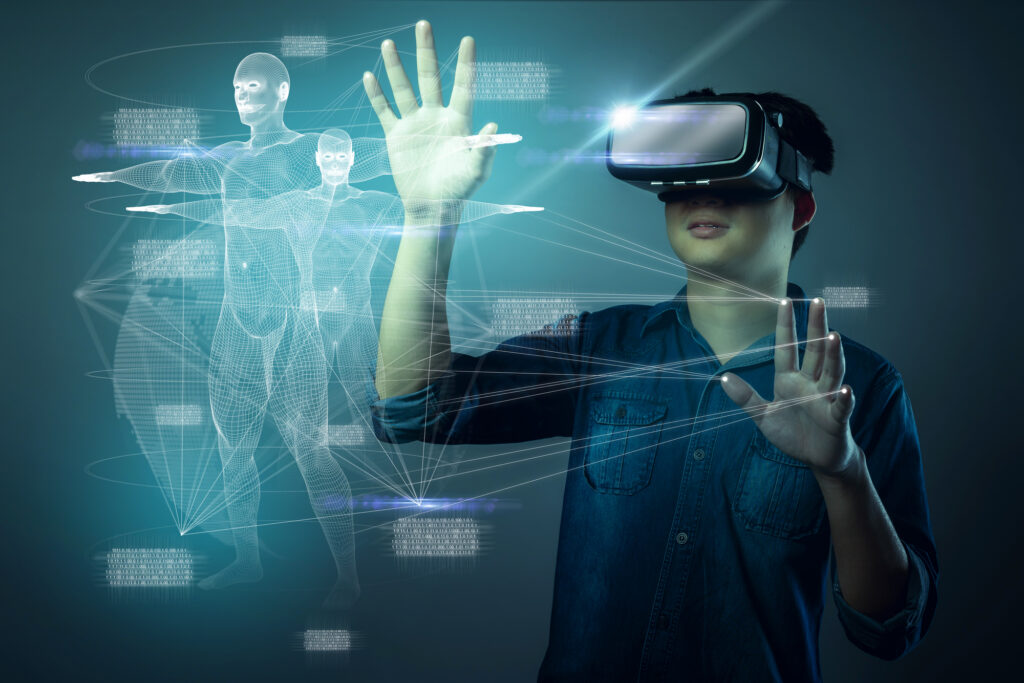
From smartphone apps to online therapy platforms, digital mental health interventions offer a diverse range of tools and resources aimed at promoting mental well-being and delivering evidence-based treatment.
In recent years, the field of mental health care has undergone some significant changes with the emergence of digital mental health interventions. These innovative approaches harness the power of technology to provide accessible, convenient, and effective support for individuals experiencing mental health challenges.
In what follows, we’ll explore the important role of digital mental health interventions in modern mental health care. We’ll examine how these interventions are revolutionizing the delivery of mental health services, breaking down barriers to access, and empowering individuals to take an active role in managing their mental health.
We’ll also discuss the various types of digital interventions available, their potential benefits, and considerations for their implementation and usage.
Types of Digital Mental Health Interventions
Let’s now explore some of the most common types of digital mental health interventions and their unique features, benefits, and considerations.
Online Therapy and Counseling
Online therapy platforms provide professional mental health support through video, audio, and text-based communication. These platforms connect individuals with licensed therapists and counselors who offer interactive sessions, psychotherapy, and support tailored to their needs.
While there are certain limitations to online therapy, such as a lack of non-verbal cues, the benefits of online therapy are significant. Firstly, it eliminates geographical barriers and allows individuals to access mental health support from the comfort of their own homes. Sessions can also be scheduled at times convenient for the individual, making mental health care more accessible to those with busy schedules.
Finally, online therapy offers a level of anonymity and privacy that may be appealing to individuals who are hesitant to seek traditional in-person therapy.
Mobile Health Apps
Mobile health apps encompass a wide range of applications designed to support mental health and well-being. These apps may offer features such as mood tracking, stress management techniques, meditation exercises, and cognitive behavioral therapy (CBT) tools.
Mobile apps can be easily downloaded and accessed on smartphones and tablets, making mental health resources available anytime, anywhere. Individuals can also engage in self-directed activities and exercises to enhance their mental health without the need for professional intervention.
Finally, some apps offer personalized recommendations and content based on user input and preferences.
In addition, it’s important to distinguish between evidence-based apps, which are supported by scientific research, and general wellness apps, which may lack empirical validation.
Virtual Reality (VR) Therapy
Virtual reality therapy utilizes immersive technology to create simulated environments for therapeutic purposes. In mental health care, VR has been effective in exposure therapy for anxiety disorders and phobias.
VR therapy provides a highly realistic and immersive experience, allowing individuals to confront and overcome their fears in a controlled environment. Therapists can tailor virtual environments to match the specific needs and triggers of each individual, enhancing the effectiveness of exposure therapy.
While this type of tech may be cost-prohibitive for some individuals and may not be widely accessible in all therapeutic settings, and although there’s a potential for overwhelm, VR therapy remains a promising alternative for the future.

Artificial Intelligence (AI) in Mental Health
Finally, AI-powered interventions leverage machine learning algorithms to provide immediate support and personalized recommendations for mental health concerns. This includes AI chatbots for emotional support and machine learning algorithms for treatment planning.
AI chatbots can offer immediate emotional support and guidance to individuals in distress, providing a valuable resource outside of traditional therapy sessions.
Thanks to machine learning algorithms, the opportunity now exists to analyze large datasets to identify patterns and trends in individual mental health profiles, which can help create personalized treatment recommendations.
Since AI is still early in its development, AI interventions often can lack the human empathy and understanding that are essential components of effective mental health support. Concerns about data privacy and security may also arise with the use of AI-powered interventions, particularly regarding the handling of sensitive mental health information.
The Future Direction of Digital Interventions
As technology continues to advance at a rapid pace, the future of digital mental health interventions holds great promise for beneficially altering the landscape of mental health care. These interventions are poised to become increasingly sophisticated, personalized, and accessible, offering innovative solutions for addressing a wide range of mental health challenges.
Looking ahead, we can expect to see continued growth and refinement in the development of digital mental health interventions. This may include advancements in artificial intelligence to enhance the effectiveness of chatbots and personalized treatment recommendations, as well as improvements in virtual reality technology to create even more immersive and interactive therapeutic experiences.
The integration of digital mental health interventions into traditional mental health care settings is likely to become more seamless, with therapists and clinicians incorporating these tools into their practice to augment and enhance the therapeutic process.
As we embrace the potential of digital mental health interventions, it’s essential to remain mindful of the ethical considerations and potential pitfalls associated with their use.
This includes safeguarding patient privacy and data security, ensuring the accuracy and reliability of AI algorithms, and addressing issues of access and equity to ensure that these interventions reach all individuals in need of support.
Final Thoughts
Digital mental health interventions represent a superior force in mental health care, offering hope and opportunity for improving the lives of millions of people around the world. By harnessing the power of technology, we can create a future where mental health support is accessible, personalized, and effective for all.
This content was written and reviewed by a medical doctor. 
Bad Therapist? A Guide to Protecting Your Mental Health
A bad therapist can significantly hinder a client’s progress by being judgmental, dismissive, or unempathetic, leading clients to feel invalidated or misunderstood.
Mental Health in the Workplace
Mental health in the workplace is a critical aspect of overall well-being and organizational success.
Understanding Types of Stigma: Mental Health Challenges
Types of Stigma Stigma surrounding mental health remains a significant barrier to seeking help, accessing treatment, and achieving recovery for many individuals.
Child and Adolescent Mental Health Challenges
Navigating the complexities of childhood and adolescence often can involve some mental health challenges, from anxiety and depression to behavioral disorders.




